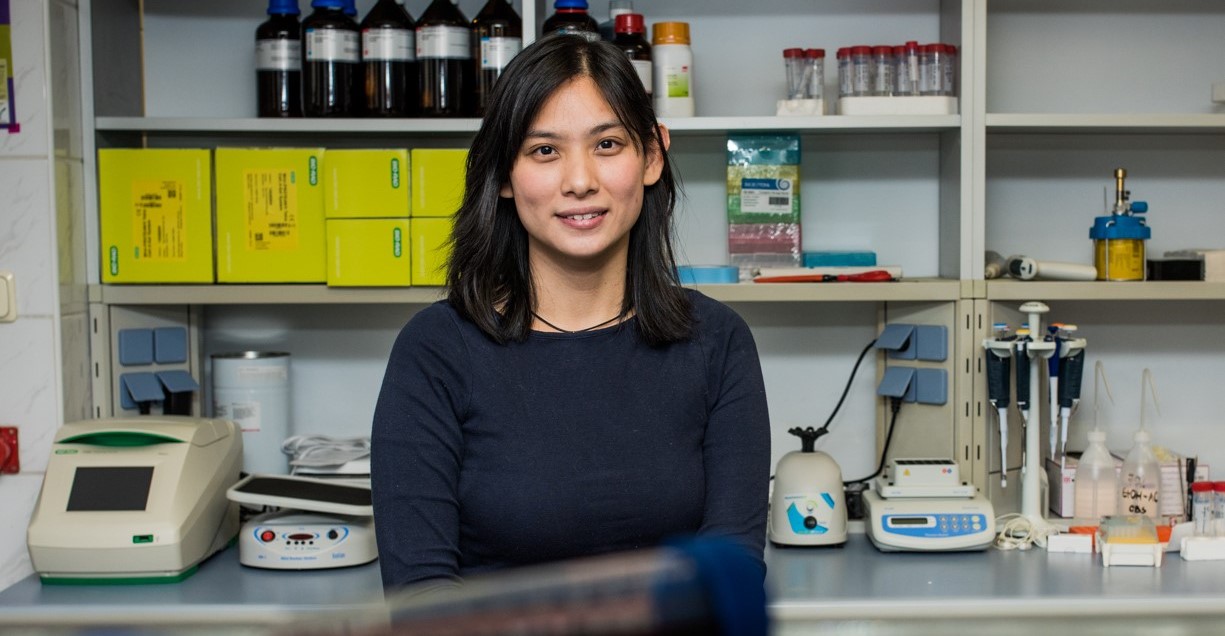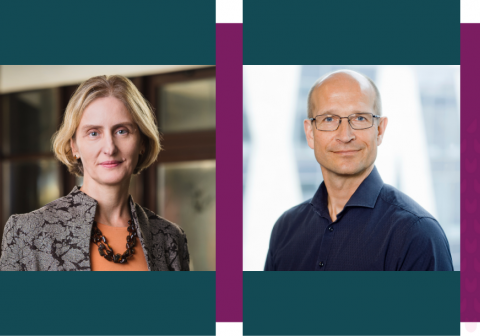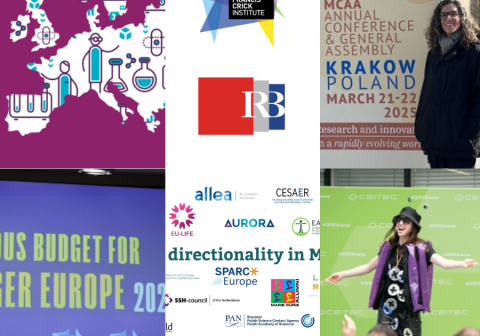Women in EU-LIFE: Cecilia Winata, Laboratory Leader at IIMCB

Could you tell us a bit about your research?
I have always been interested in the question of how gene expression is precisely regulated during development. My lab’s main research focuses on studying the mechanism of heart development, as well as diseases that could arise as a consequence of disruption to this process. We are also interested in studying basic processes of RNA regulation, specifically, RNA A-to-I editing. We use the zebrafish (Danio rerio) as a model organism.
Could you take us back to the beginning of your scientific career? What got you interested in this field?
My interest in becoming a scientist came early in my life. As a child, I was very curious about many things and my father has always been the one who diligently answers my questions about practically everything. He has been an academic all his life, leading a small electrical engineering lab and teaching courses in the university. Therefore, he naturally became my teacher and role model and it inspired me to be a scientist myself. In senior high school, I had a biology teacher who got me interested in the subject. She was somehow able to bring the subject to life. I was particularly intrigued by Mendelian genetics and started to wonder what is the basic mechanism of traits and their inheritance, as well as its potential implications in biology. This was also the time when the human genome sequencing project was initiated and many fundamental questions in genetics were waiting to be answered.
These exciting developments led me to decide to pursue biology in university. Subsequently, I had the fortune of encountering many inspiring colleagues and mentors throughout my studies and postdoctoral training. Among which were my PhD supervisors Profs Gong Zhiyuan and Vladimir Korzh, through whom I learned the ropes of being a scientist; my mentor Dr Svetlana Korzh, who was the first person who (very patiently!) ever taught me real labwork from scratch. Through my work with these people, I got to learn how powerful and versatile the zebrafish model organism is to address various biological questions. I believe these experiences were fundamental in shaping my research interests and strategies.
In summary, I believe that having a good teacher and mentor was probably the most essential factor in getting me into science!
What would you have liked to be if you were not a researcher? Is that field related in any way to your current work?
I don’t think I can imagine being anything else other than a scientist, but if I really have to do something else, I would like to contribute my scientific skills into work related to preservation of biodiversity in South-East Asia, or write a book on a science-related topic. Otherwise, I would also be happy doing any occupation involving either serious cooking or playing the cello – although their relation to science may not be apparent, I approach both the same way as experiments in the lab, in that it requires optimization, repetitions, before finally enjoying the outcome. Except that the gratification is much more immediate and there is less chance of failure than in science.
Do you think women studying and working in STEM face specific challenges?
I believe the STEM field poses specific challenges as it often demands involvement beyond official working hours. For instance, working with biological systems often require us to come to the lab on a weekend or afterhours as a developing embryo doesn’t just stop according to our convenience. Moreover, the pursuit of scientific questions requires constant thought process which extends beyond the confines of the lab. The time and effort that needs to be invested into setting oneself up for a scientific career is substantial (several years of graduate studies and postdoctoral training). For women, these demands are often in conflict with other life plans, for example if they want to start a family. I recall an anecdote written by Davor Solter in his obituary for Salome Glueckson-Waelsch (Dev Cell 14:22-24, 2008), which I quote below:
“…In a conversation with my wife, Barbara Knowles, Salome asked how she felt about being a scientist and a mother. Barbara answered ‘‘always guilty, guilty for not spending enough time with my children and guilty for not spending enough time with my science.’’ ‘‘Precisely,’’ countered Salome. This was obviously a problem for her as well.”
I believe many mothers, including those who are in the STEM field, would agree with me that this is indeed the most difficult part of the job.
On top of this, there are the expectations of society on women’s roles, which of course varies according to cultural background. This unfortunately still poses a big issue in many places, where women are usually expected to take on the larger share of housework and childcare. Personally, coming from the still largely traditional society of Indonesia, I still face questions against my choice of such a “demanding” occupation and my relentless commitment to it. Occasionally, I was even accused of putting my career before my children. The open-minded attitude and encouragement from my parents and close friends, as well as the conducive environment in my workplace, were instrumental in filtering out the negative comments and continue to inspire me to stay the course.
All in all, I believe that women facing such societal expectations are still very much in need of both mental and tangible support. On the other hand, without the reciprocity of understanding and action coming from the society, any attempt to promote women to go into vocations such as STEM would be an uphill battle.
You have been based in very different countries along your career, have you had different experiences as a female researcher?
My experiences in Singapore and Poland have been positive and I never felt that I was treated differently as a female researcher. I do notice though that Poland has many more women in senior or top leadership roles. For instance, the directors of three of the most renowned molecular biology institutes in Warsaw are women. To me, this is especially inspiring as it tells how courageous the women in this society are, and at the same time, the attitude of the society in promoting women for the highest leadership positions.
There have been a lot of initiatives in the last decades to improve conditions for women in STEM. Where do you think we stand? Can you elaborate?
The realization of the need to support women is generally well established in most developed nations. There are good initiatives already in place by the European Union to support this cause, e.g., gender equality plan and fair hiring practices, which I believe helped to promote the awareness and action at the organizational level. Top-tier funding bodies such as the ERC have also introduced measures to help women, such as extending the eligibility period according to the number of children. There are also special funds and fellowships for women which addresses the very practical problems at the level of the individual. Some very good examples include the CNV Foundation stipend which provides financial assistance for covering household and childcare work. Similarly, the L’OREAL-UNESCO For Women in Science program also provides financial grants which can be flexibly used by the individual. Unfortunately, the number of these programs is still very limited, and even more so outside of Europe.
In my opinion, there is generally still a lack of awareness and understanding in many countries/societies of what it means to support women to pursue their aspirations. The unequal distribution of women of certain nationalities in the STEM field is very telling of this problem. The initiative should start from each member of the household, up to educational institutions and hiring organizations, to adopt the mindset that women are equal to men, that we also deserve to work towards our dreams and fulfil our calling without having to (or made to) feel guilty.
What message would you give to other women who are interested in pursuing a career in STEM?
Stay curious, never give up on looking for the answers to your questions, and don’t let anyone tell you that you are not worthy of your dreams. Let your dedication to this pursuit be an inspiration to your children (or the next generation of scientists).
- To know more about Cecilia Winata’s research, visit her lab's web page: https://www.iimcb.gov.pl/en/research/8-laboratory-of-zebrafish-developmental-genomics



